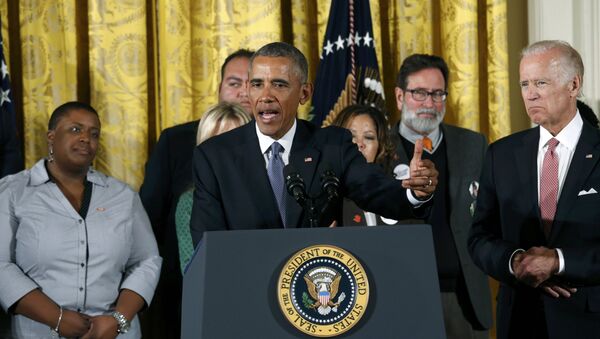Planned FOIA amendments also suggest the creation of a federal online portal to list all information requests and oblige government agencies to keep their FOIA regulations updated.
The so-called Exemption 5, a deliberative-process privilege allowing the withholding of certain documents, including an internal CIA study on the agency's torture program, would be rescinded under the new legislation. In the view of many members of the security-intelligence community the move could inflict "foreseeable harm" to those agencies.
"This FOIA reform bill was incredibly modest, had already been watered down, and had the unanimous support of both parties — something that, in today's political climate, almost never happens," said Trevor Timm, executive director of the Freedom of Press Foundation.
In fact, after making that recommendation, the Obama administration secretly worked to reverse processes that could result in a more transparent government, a set of Department of Justice (DOJ) papers obtained by the Freedom of Press revealed.
"The Administration believes that the changes… are not necessary and, in many respects, will undermine the successes achieved to date by diverting scarce processing resources,” according to DOJ documents.
Nate Jones, director of the FOIA Project at George Washington University's National Security Archive, said that the released DOJ documentation has laid bare that the agency 'strongly opposes' the expansion of FOIA protocols.
Despite the revelations, DOJ spokeswoman Beverley Lumpkin stated that the agency is "committed to the Freedom of Information Act and dedicated to improving transparency and open government." She refused to give additional details regarding the “technical aspects of proposed legislation.”
"Transparency advocates have been very cynical of the Obama administration's claim that they're the 'most transparent ever'… but the fact that they opposed virtually every aspect of this bill is, sadly, a new low." Timm said.





